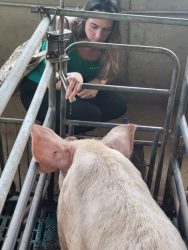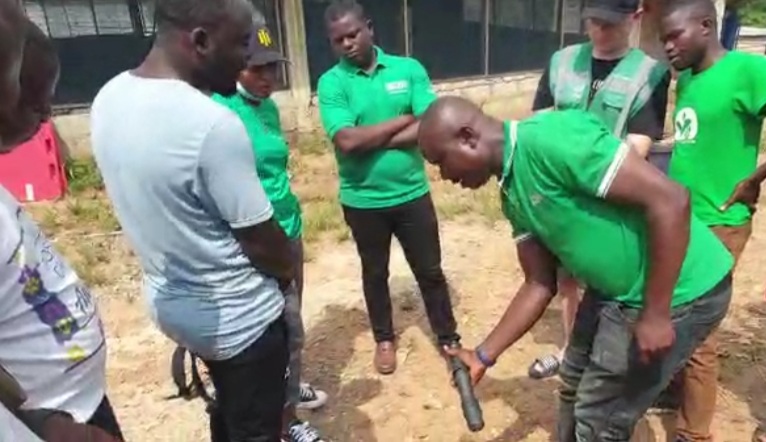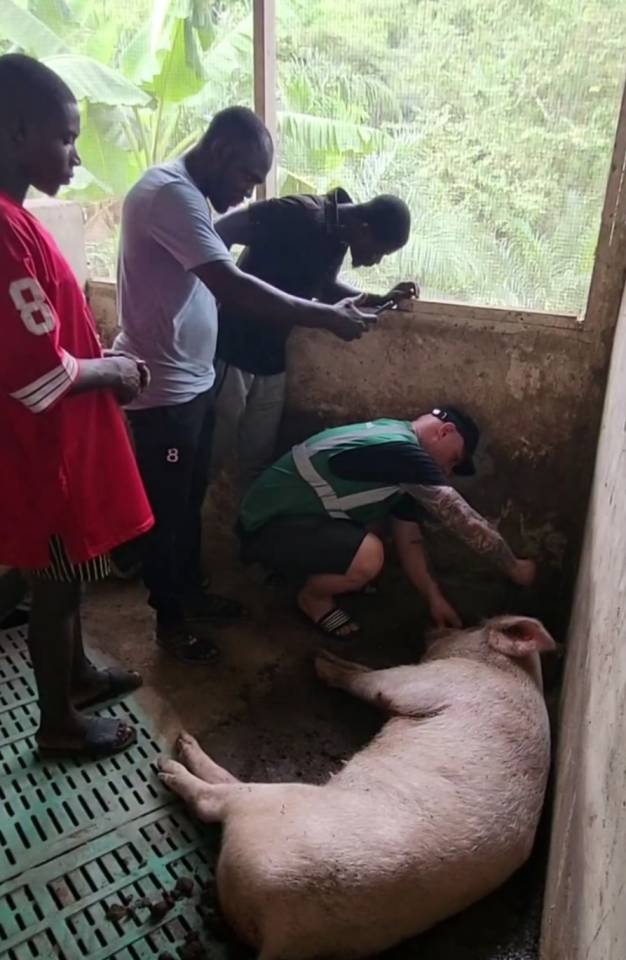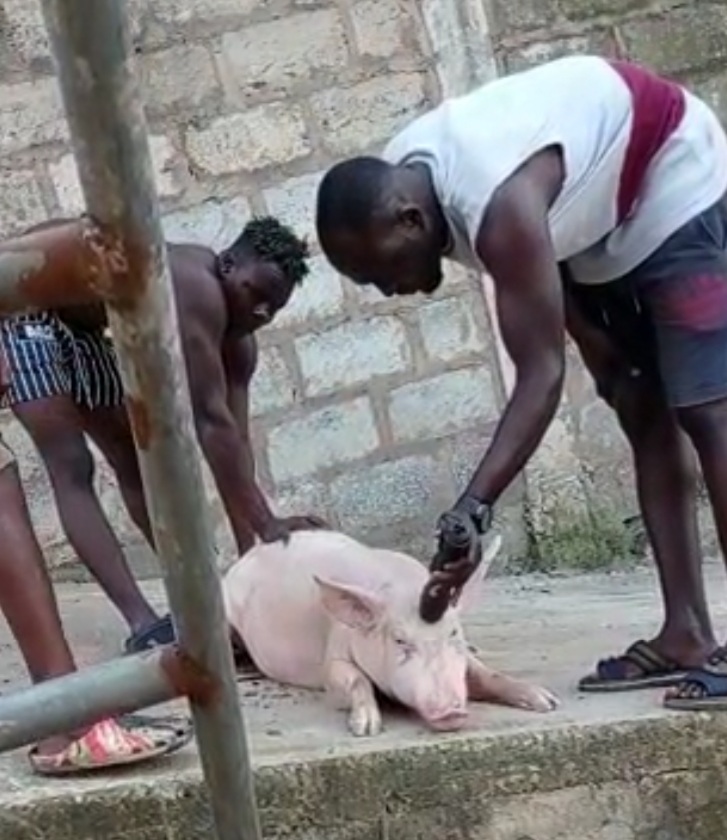
This late afternoon the team from WACPAW and Eyes on Animals visited a second large pig farm in the Eastern Region of Accra in Ghana. The pigs at this farm were not very healthy. Many were emaciated and had serious wounds from ear biting. A number of pigs were also seriously lame and sick. One sow even had a broken spine from trying to turn around in her Made in China gestation crate and was left lying in her dry excrement. She had not even been able to move herself towards the water nipples and was thus not only in serious pain but also totally dehydrated.
The fattening pigs had adequate space, but the gilts and sows were kept in individual crates with nothing to do but lie down or stand up, just like factory farms in the West. There were also not enough water nipples and the water pressure was very low. Sadly they also did not have any foraging material – they are raised on concrete floors. A positive point about this farm however is that they slaughter their animals on site, instead of transporting them for hours on poor trucks to slaughterhouses far away. Their slaughter slab however is out in the open on their premise with no raceway to guide pigs towards it. The pigs are thus brought out of the farm by the workers using rough and scary handling methods such as dragging by their legs and pulling by their ears. Additionally, they do not have any “humane” equipment to render the pigs immediately and painlessley unconscious before cutting their throats and bleeding them out. For this reason, they use wooden clubs to beat the pigs on their heads repeatedly until they are immobile (as common in Ghana and many other countries around the world).

We taught the manager and his workers how a captive bolt stunner works and explained the importance of humanely rendering the animals unconscious before rough handling or bleeding out. We then insisted that they stun and kill the sow with the broken back, as it was completely unacceptable to leave her in such a condition. Because this sow would die soon anyhow, and they would lose the meat, the manager agreed. She was put out of her misery quickly by Roy, our volunteer professional butcher. Later the workers sent us videos of them using the captive bolt pistol on other pigs during slaughter. They did a proper job. We gave the manager a stunner and a box of 500 cartridges. The manager also confirmed that better quality feed was arriving as he knew that many of his pigs were sick from poor nutrition and the water level of their water reservoir was checked so that the water pressure could be increased.


WACPAW will return to do a follow-up visit soon and make sure they are supplied with new cartridges and that welfare is improved here. We would like to thank the manager and workers for taking our visit seriously and for their enthusiasm to learn more about pig-welfare.

